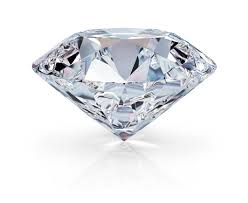diamond
英 [ˈdaɪə.mənd]
美 [ˈdaɪ.ə.mənd]
- n. 钻石,金刚石;菱形;方块牌
- adj. 菱形的;金刚钻的
- n. (Diamond)人名;(英、意、葡)戴蒙德;(法)迪亚蒙
使用频率:

记忆方法
记忆“diamond”可以通过联想其外形。想象一个“di”字像一个手指,然后是一个“a”字像一张平铺的纸,最后是两个“m”字叠加成一个菱形,就像钻石的形状。通过这种视觉联想,可以帮助记住单词“diamond”代表钻石。
以上内容由AI生成, 仅供参考和借鉴
中文词源
diamond 钻石
来自拉丁语adamans, 不可驯服的,词源同adamant. a-, 不,非,-dam, 同tame, 驯服。用来指钻石。
英语词源
- diamond
-
diamond: [13] Diamond is an alteration of adamant, a rather archaic term which nowadays refers to hard substances in general, but formerly was also used specifically for ‘diamond’. The alteration appears to have come about in Latin of post-classical times: adamant- (stem of Latin adamas) evidently became Vulgar Latin *adimant- (source of French aimant ‘magnet’), which appears to have opened the way to confusion, or at least association, with words beginning dia-. The result was medieval Latin diamant-, which passed into English via Old French diamant.
=> adamant - diamond (n.)
- early 14c., from Old French diamant, from Medieval Latin diamantem (nominative diamas), from Vulgar Latin *adiamantem (altered by influence of the many Greek words in dia-), from Latin adamantem (nominative adamans) "the hardest metal," later, "diamond" (see adamant). Playing card suit is from 1590s; Sense in baseball is American English, 1875.
权威例句
- 1. The cut of a diamond depends on the skill of its craftsman.
- 钻石切割靠的是工匠的技艺。
- 2. The diamond towns are gradually being reclaimed by the desert.
- 这些钻石城镇正逐渐重归沙漠。
- 3. In industry, diamond can form a tough, non-corrosive coating for tools.
- 在工业上,金刚石可以用作工具表面坚固、耐腐蚀的覆盖层。
- 4. She wore several diamond rings.
- 她戴了好几个钻石戒指。
- 5. Desmond did not believe the diamond was real.
- 德斯蒙德不相信那钻石是真的。